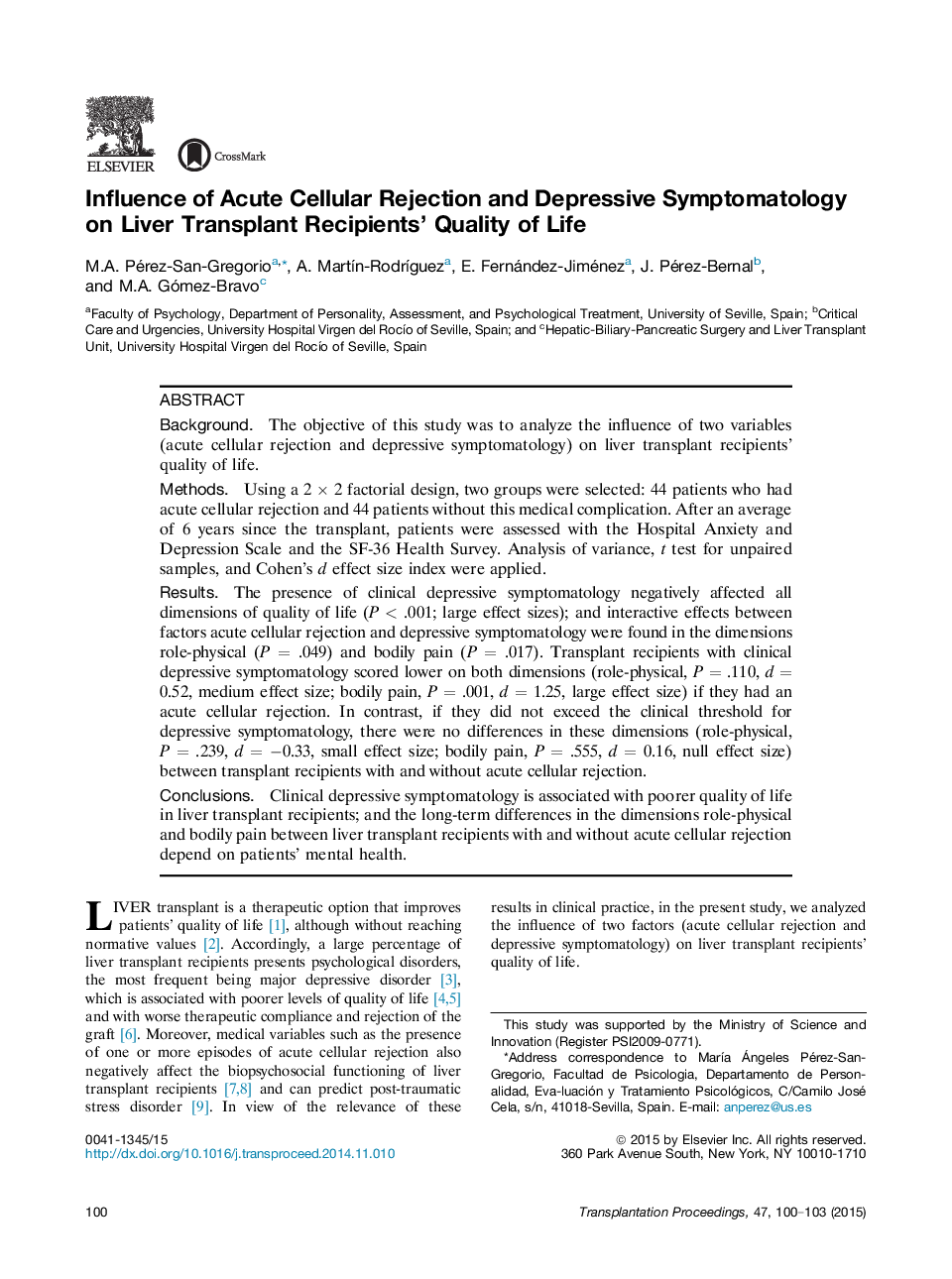| Article ID | Journal | Published Year | Pages | File Type |
|---|---|---|---|---|
| 4256373 | Transplantation Proceedings | 2015 | 4 Pages |
BackgroundThe objective of this study was to analyze the influence of two variables (acute cellular rejection and depressive symptomatology) on liver transplant recipients' quality of life.MethodsUsing a 2 × 2 factorial design, two groups were selected: 44 patients who had acute cellular rejection and 44 patients without this medical complication. After an average of 6 years since the transplant, patients were assessed with the Hospital Anxiety and Depression Scale and the SF-36 Health Survey. Analysis of variance, t test for unpaired samples, and Cohen's d effect size index were applied.ResultsThe presence of clinical depressive symptomatology negatively affected all dimensions of quality of life (P < .001; large effect sizes); and interactive effects between factors acute cellular rejection and depressive symptomatology were found in the dimensions role-physical (P = .049) and bodily pain (P = .017). Transplant recipients with clinical depressive symptomatology scored lower on both dimensions (role-physical, P = .110, d = 0.52, medium effect size; bodily pain, P = .001, d = 1.25, large effect size) if they had an acute cellular rejection. In contrast, if they did not exceed the clinical threshold for depressive symptomatology, there were no differences in these dimensions (role-physical, P = .239, d = −0.33, small effect size; bodily pain, P = .555, d = 0.16, null effect size) between transplant recipients with and without acute cellular rejection.ConclusionsClinical depressive symptomatology is associated with poorer quality of life in liver transplant recipients; and the long-term differences in the dimensions role-physical and bodily pain between liver transplant recipients with and without acute cellular rejection depend on patients' mental health.
